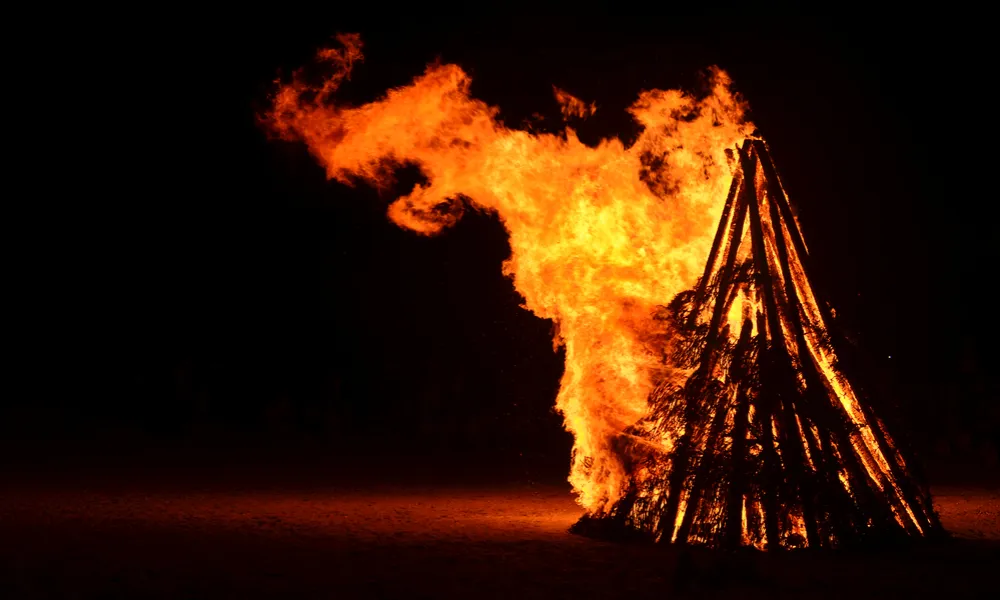With a brief email, the Church of Cyprus reversed its earlier position and stated it agrees with the content of the revised bill regulating the lampratzia Easter bonfires. The message, sent by the Director of the Archbishop’s Office on 15 October to the Ministry of Justice (MoJ), read: “His Beatitude agrees with the content of the bill.” The ministry forwarded the note to the House Legal Affairs Committee (HLA Committee) ahead of today’s discussion.
How we got here
At the 24 September sitting of the HLA Committee, the Church’s representative had urged a total ban on bonfires in all areas around churches. He argued that the custom has strayed from ecclesiastical tradition and no longer qualifies as a worthy element of folk heritage. He said today’s practice evokes primitive religious demands, profanes the solemn character of the Resurrection liturgy with explosions of firecrackers and fireworks even at church entrances, and has led to casualties. He urged that bonfires be moved away from church grounds, detached from the Church as unbecoming, and that responsibility be removed from ecclesiastical bodies. Following that intervention, the committee asked the Holy Synod to submit its formal position on the bill. Instead, the Archbishop’s Office later conveyed the concise email of agreement.
What the bill provides
With the Church’s stance now changed, there appears to be no remaining institutional obstacle to the bill, which is expected to reach the House plenary (HoR) for a vote soon. The HLA Committee is scheduled to begin article-by-article consideration today.
The bill allows only one bonfire per parish church, placed at a point near the church that meets fire safety conditions and is at least thirty metres from the building. Preparation and lighting of bonfires inside state or private forests is prohibited. No bonfire may be placed on someone else’s property without the owner’s written consent. Each bonfire must consist of a small quantity of clean, non chemically treated wood, with a base diameter and height that do not exceed three metres. The organiser bears responsibility for the cost, transport and placement of materials and must ensure the fire is not left unattended or burning. Preparation may begin on Holy Wednesday and can continue until 16:00 on Holy Saturday. Lighting is permitted between 23:00 on Holy Saturday and 01:00 on Easter Sunday.
